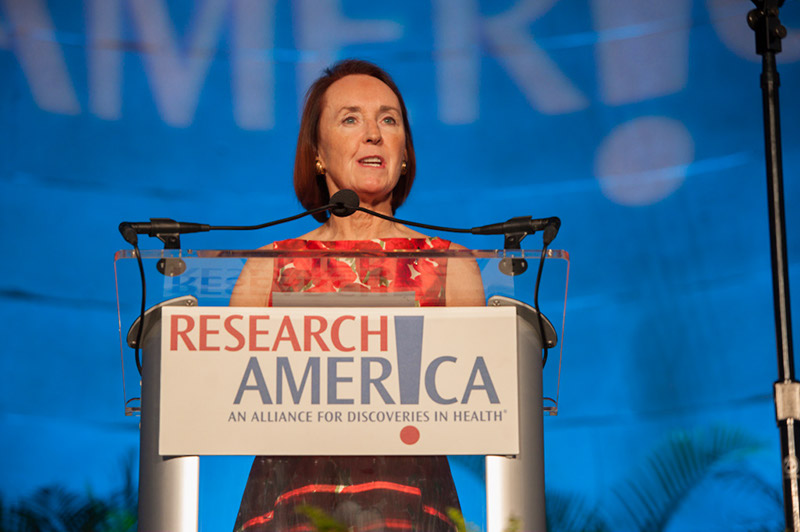Embracing Advocacy and Public Engagement

Dear Research Advocate,
I am pleased to announce that Senator Lamar Alexander (R-TN) will receive the Edwin C. Whitehead Award at our Advocacy Awards Dinner on March 15 in Washington, D.C., for his steadfast commitment to improving the lives of Americans through research, and for leading passage of the 21st Century Cures Act in the Senate. Join us in honoring him!
This week, Research!America issued a statement and signed on to a letter spearheaded by AAAS calling on President Trump to rescind his executive order (EO) establishing a temporary ban on certain immigrants. Another Presidential EO placed a temporary hiring freeze on all federal employees, with limited exceptions. A memo from OMB suggests more flexibility, including personnel involved in drug reviews; however, the extent of the impact on FDA, CDC and NIH remains unclear. Stay tuned…
The March for Science is moving ahead. It is scheduled for Earth Day, April 22. The mission statement for the movement is strong: “the March for Science champions publicly funded and publicly communicated science as a pillar of human freedom and prosperity.” As is usually the case when it comes to civic actions like this, opinions differ on its likely impact. One that especially caught my attention is Robert Young’s view in a New York Times op-ed that the march is a mistake, saying that more public engagement would be a better response to “a growing fear that fact-based decision making is losing its seat at the policy-making table.”
I heartily agree that scientists should, as a matter of committed practice, engage regularly with non-scientist audiences; science skepticism is, at least in part, a symptom of insufficient public engagement by the science community. We work on this all the time – changing the culture of science to embrace public engagement is a major focus of Research!America’s work. That said, I can’t get on board with dismissing a science march as inevitably un- or counter-productive. In fact, I think it is exciting that so many people are speaking up for science. There is more than one way to move science up among our nation’s priorities! Because their work can be leveraged to stop deadly disease, forestall terrorist acts, identify global environmental threats and point to potential solutions, and meet other life or death priorities, there is every reason for scientists to explore every option for civic engagement.
This could well be the toughest environment for science funding since the Budget Control Act went into effect in 2011. Research!America sent a letter to congressional leadership making the case for completing the FY17 budget process without resorting to continued flat funding for our nation’s research agencies, and for establishing 302(b) allocations that permit strategic growth, rather than stagnation for U.S. research priorities. Are you willing to weigh in?
So, the question remains – as stakeholders in research for health, through and through, what do we do to ensure that our nation remains resilient, powerful, and open? We continue to advocate! Maybe we march, maybe we write op-eds, maybe we write letters, or all of these and more — let’s speak up about what is important to our health, and our scientists, and our nation. That was my theme at a presentation to the Huntington Medical Research Institutes (HMRI) on Monday. HMRI board members joined Director Marie Csete, scientists and staff to welcome and engage me– thank you! (Click here for my presentation and here for more about HMRI.)
Please join us for our Medical Innovation 101 luncheon briefing on Capitol Hill February 14!
Sincerely,
Mary Woolley




